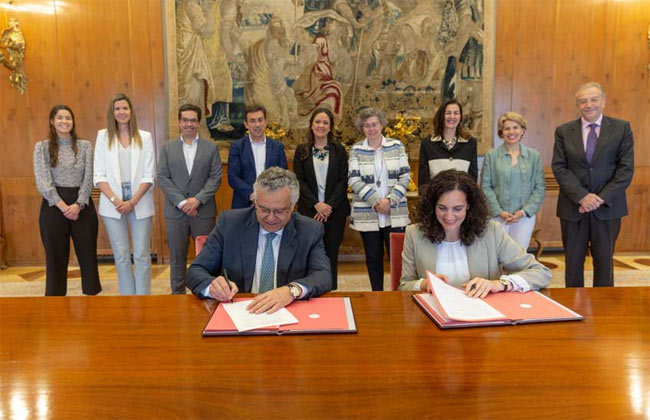Who are we?

The Institute for Culture and Society (ICS) is a research center in Humanities and Social Sciences of the University of Navarra that develops interdisciplinary and Christian-inspired projects to understand the human being and respond to the global challenges of society.

What is our goal?
Through the generation of knowledge and its application in society, we aspire to become a center of international reference letter to participate in the main forums of discussion on the great challenges of human beings and to influence decision making for the common good.
We do research to understand
the human being and contribute
to a better society
We draw our inspiration from society to orient our research towards issues that are close to reality. Organized in eight groups of research, our researchers aspire to generate spaces of coexistence and equality in a pluralistic and globalized world; to value our legacies in order to build the future; to care for the individual, especially the weakest and most vulnerable; to foster links to favor the development of people, institutions and societies; and to understand the role of creativity and technology as tools at the service of people.

What are our values?
multidisciplinarity
Given the complexity of the issues addressed in the ICS, a dialogue between knowledge is required to advance the knowledge. which is manifested transversally in the teams, the activity and the research of the center.
international outreach
It helps to bring together people from different scientific cultures. This plurality of approaches allows the answers given to the problems raised to have universal validity.
Social impact
The ICS is inspired by society to enrich its research and, in turn, aspires that the results of the projects contribute to improving it through dialogue with various social agents.

We live in an increasingly global, complex and changing world. To meet the challenges of today's society, universities play a decisive role as institutions genuinely dedicated to the search for Truth. Seeking to broaden the understanding of the world and the human being, the Institute for Culture and Society develops an international, interdisciplinary, scientifically rigorous and socially impactfulresearch to respond to the great challenges of the human being with universal proposals."
Jaime García del Barrio
Director from Institute for Culture and Society
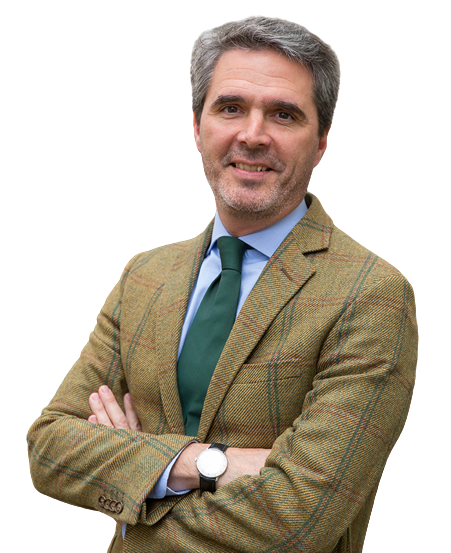

Our history
-
1998
Benedict XVI
When Cardinal Joseph Ratzinger (later Pope Benedict XVI) visit the University to receive the doctorate Honoris Causa, he was impressed by the interdisciplinary vocation of the University. On his return to Rome, he wrote a letter to Office of the Executive Council to thank him for his welcome in Pamplona. In it, he proposed that the University should become a platform for promote open dialogue through the Humanities, with the goal aim of seeking the truth and transcending relativism. In it, he is committed to placing the focus on the dignity of the person in the face of cultural and political conditioning and on concerns of great social significance.
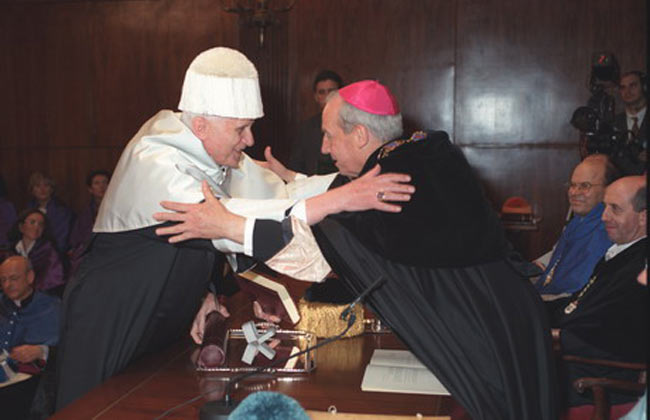
-
2004
research center in Social Sciences and Humanities
In 2004, the Congregation for the Doctrine of the Faith - with the then Cardinal Ratzinger as its prefect - approached various academic centres around the world - including the University of Navarra - to apply for the partnership in the study: "Evaluating the presence of the essential contents of the natural moral law in contemporary society". Subsequently, at the opening of the academic year, José María Bastero, then University's President, announced the creation of the research center in Social Sciences and Humanities with the aim of: "Consolidating stable operational groups of a transversal nature that undertake projects of scientific and social transcendence. [...] The purpose is to have a centre multidisciplinary of research excellence in these scientific areas, which will dynamise the teaching and the research work".
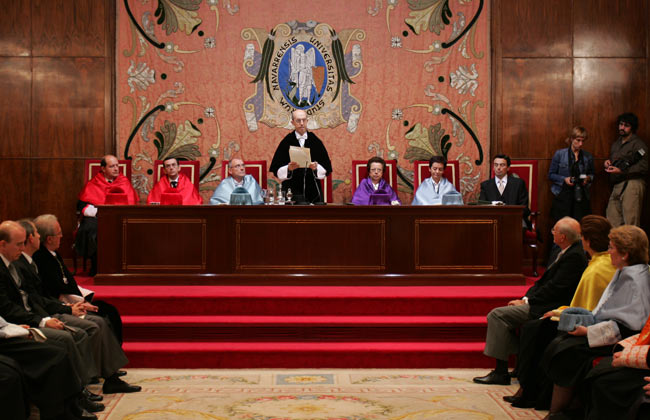
-
2009
Call for research projects
A call for expressions of interest for interdisciplinary research projects is launched at Humanities and Social Sciences. 25 proposals are received. Between January and July 2009, an external international committee selects 9 projects that move on to the second phase and are evaluated according to their scientific quality, Degree innovation and risk, team experience, internationalization, multidisciplinarity, partner-economic impact and capacity to generate and attract resources.
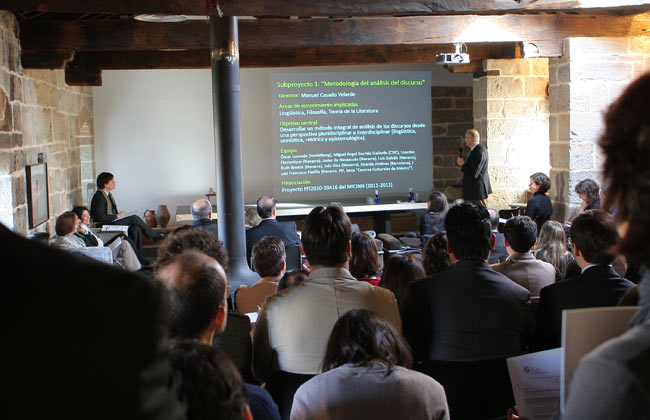
-
2010
Creation of the ICS
In January 2010 a competition is held to choose the name of the centre and in March the centre is officially created. The first projects are launched: 'Emotional culture and identity', 'Public discourse', 'Education de la afectividad y de la sexualidad humana', 'El withdrawal de la figuración en las artes contemporáneas', 'Fronteras y cultura', 'Ley natural y racionalidad internship', 'Mente-cerebro', 'Religion and Civil Society' and 'Center for International Developement'. In addition, the principal investigators of the projects are incorporated and research begins.
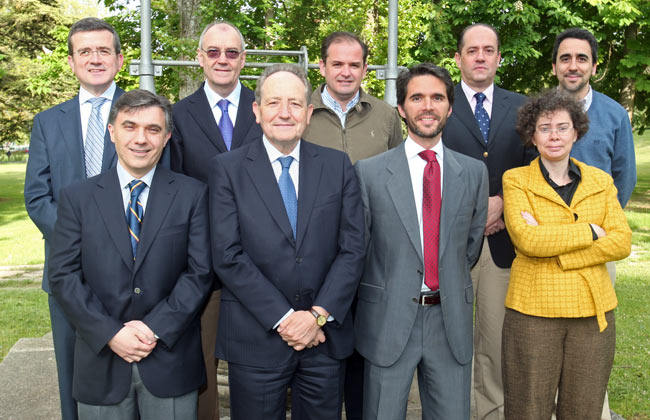
-
2012
ATLANTES" is incorporated
A new project, the 'ATLANTES Research Program: human dignity, Advanced Illness and Palliative Care', is incorporated. ATLANTES is developed under the hypothesis that it is possible promote to develop a positive mentality in society and in medicine regarding the attention and care of patients with advanced and irreversible illness.
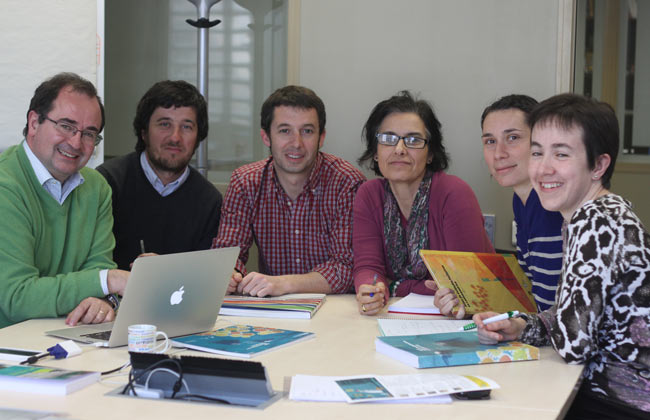
-
2013
First triennial evaluation
The first triennial evaluation of the centre is carried out. Between September and November 2013, a roadshow is held to present the ICS in seven Spanish cities: Pamplona, Seville, Vigo, Barcelona, Madrid, San Sebastian and Valencia.
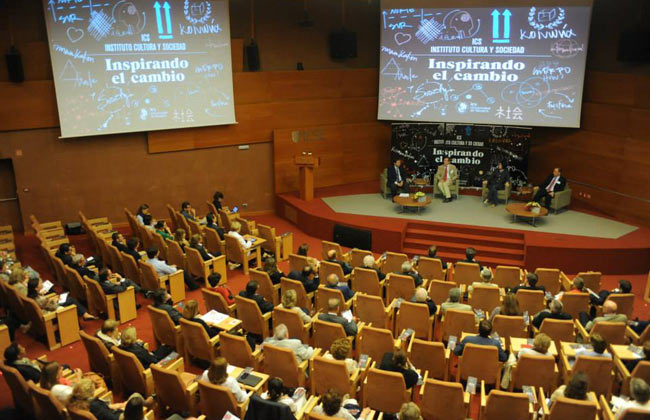
-
2016
New headquarters
Inauguration of the new headquarters, located in the east wing of the Library Services of Humanities. The project 'Creativity and Cultural Heritage' is launched. It promotes projects aimed at researching and disseminating different aspects of the historical and cultural bequest , with a special focus on Navarre and its projection towards other territories.
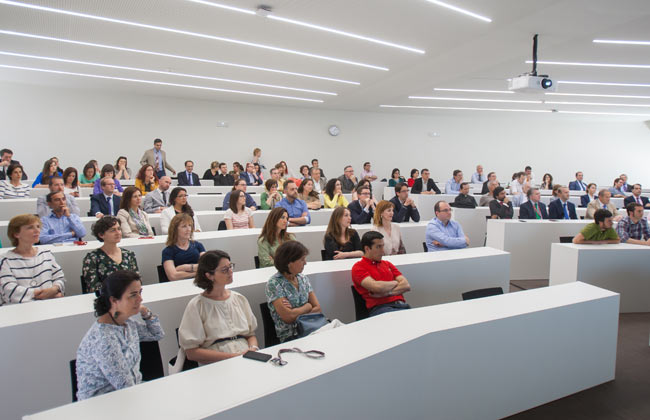
-
2017
Youth in transition
project 'Youth in transition' is launched. It seeks a deeper understanding of the challenges faced by today's young people during the transition from adolescence to adulthood.
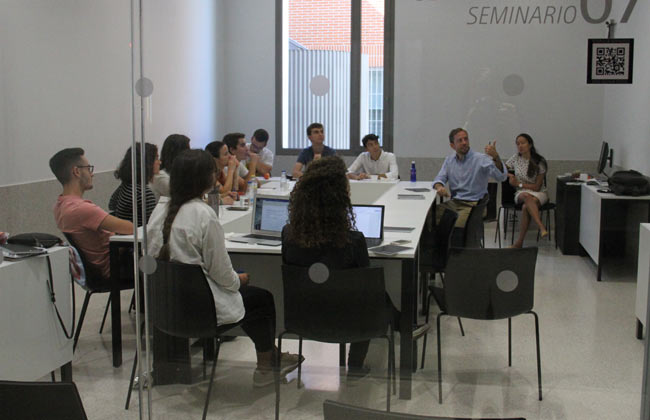
-
2019
Internal and external evaluation
With the end of the third three-year period of the ICS, an internal and external assessment of the center is carried out, with international experts. Pablo Pérez, Full Professor in History, is appointed director scientific of the ICS in substitution of Ana Marta González who would continue as principal investigator of 'Emotional culture and identity'.
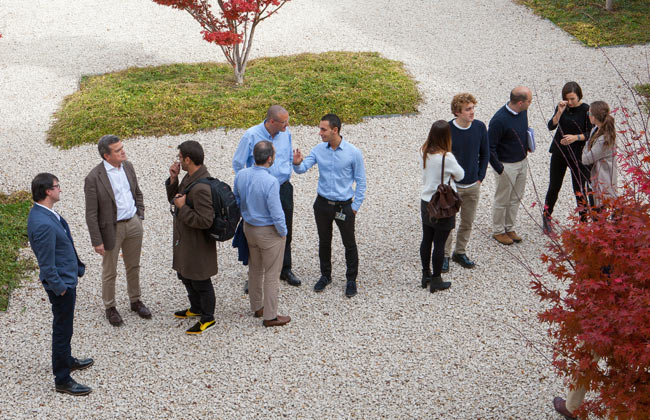
-
2020
X Anniversary
The ICS celebrates its X with a visibility campaign that included the design of a new logo, a video and an informative brochure and a traveling exhibition that visited the various buildings of the University to publicize the work of the center during the first decade. The Chair Álvaro d'Ors de Derecho, Cultura y Sociedad was created as a result of an agreement between the ICS and the Fundación Ciudadanía y Valores. REDWINNnetwork Ibero-Americannetwork for Innovation and training to Strengthen Women's Impact in Innovation Ecosystems) joins the ICS to make female leaders visible through research, innovation promotion, training and knowledge dissemination.
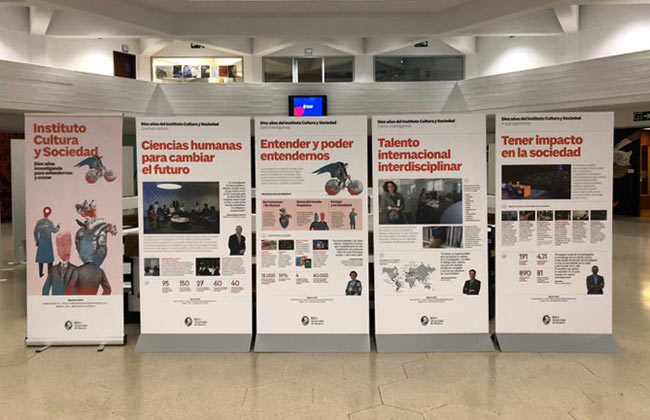
-
2022
Center partner
The challenge ICS 22-23 "Youth, Relationships and Psychological Well-Being" is launched with the goal to study psychological well-being in adolescence and youth. The challenge is a topic of research and knowledge dissemination that puts in dialogue different projects of the center and international collaborators.
The 'Civic Humanism Center for programs of study on the character and ethics of the professions' has also been set up thanks to the support of the Citizenship and Values Foundation. Finally, the groups 'Emotional culture and identity' and 'Creativity and Cultural Heritage' are merged under the name 'Links, creativity and culture'.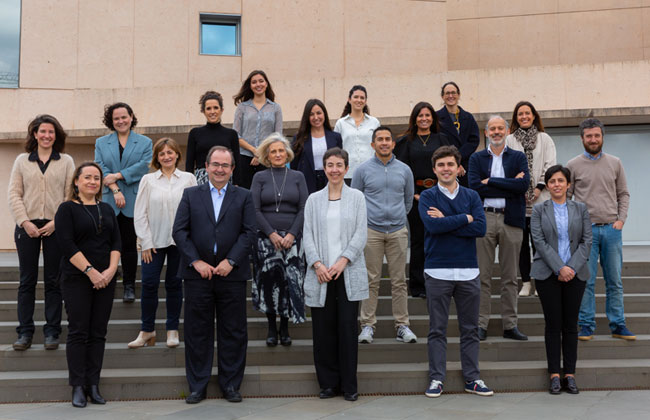
-
2023
agreement with IDEA Foundation
The University signature a agreement with IDEA to develop the Chair IDEA New Longevities. It seeks to identify the care needs of the elderly in order to design sustainable service delivery models, as well as to analyze the meaning of this phase of human life through the concept of 'meaningful aging'.
